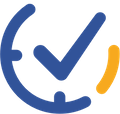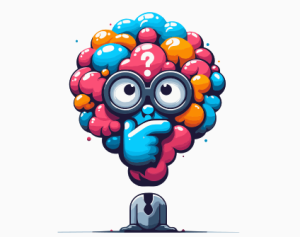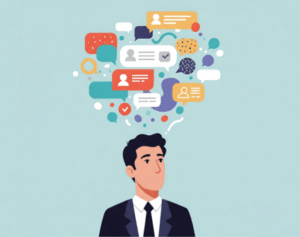Ever feel like you’re drowning in a sea of information? In our digital age, we’re inundated with emails, articles, and social media posts around the clock. It’s enough to make anyone’s head spin! Imagine having a powerful tool to navigate this information overload and boost your efficiency. That’s where critical thinking comes in – your key to unlocking peak performance and making smarter decisions.
What is Critical Thinking and Why Does it Matter?
Critical thinking is a cognitive process that involves objectively analyzing and evaluating information to form well-reasoned judgments and decisions. It encompasses a range of skills including logical reasoning, problem-solving, and the ability to consider multiple perspectives. Critical thinking is about questioning assumptions, examining evidence, and drawing conclusions based on careful analysis rather than emotion or instinct. This approach allows individuals to navigate complex situations, make informed choices, and avoid falling prey to misinformation or cognitive biases.
The importance of critical thinking extends far beyond academic settings. In our personal lives, it helps us make better decisions about finances, relationships, and health. Professionally, critical thinking is essential for innovation, problem-solving, and effective leadership. It enables us to adapt to new challenges, think creatively, and communicate more effectively. Critical thinking provides a framework for clearer, more rational thought processes, whether you’re analyzing market trends, evaluating political claims, or simply trying to make sense of conflicting information.

Level Up Your Critical Thinking Game
Ready to flex those mental muscles? Try these brain-boosting exercises:
1. Question Everything (Yes, Even This Article!)
Don’t just accept information at face value. Ask yourself:
– Who’s behind this information?
– What’s their motivation?
– Is there evidence to back up these claims?
Challenge: Pick a widely accepted “fact” and spend 15 minutes researching alternative viewpoints.
2. Embrace the Power of “Yet”
When faced with a tough problem, add “yet” to your vocabulary:
– “I don’t understand this… yet.”
– “We haven’t found a solution… yet.”
This simple mindset shift keeps you open to new possibilities and prevents mental roadblocks.
3. Play Devil’s Advocate (With Yourself)
Before making a decision, argue against your position. This helps you:
– Identify weak points in your reasoning
– Consider perspectives you might have overlooked
– Make more balanced choices
Try This: The next time you’re about to make a big purchase, list three reasons why you shouldn’t buy it.
4. Curiosity Didn’t Kill the Cat (It Made It Smarter!)
Cultivate a sense of wonder about the world around you:
– Ask “why” and “how” questions relentlessly
– Explore topics outside your comfort zone
– Seek out new experiences and viewpoints
Challenge: Learn about a completely random topic for 30 minutes each week. You never know when that obscure knowledge might come in handy!
5. Reflect and Refine
After making a decision, don’t just move on. Take a moment to analyze the process:
– What information influenced your choice?
– Were there any biases at play?
– How could you improve your decision-making next time?
Pro Tip: Keep a decision journal. Jot down major choices, your reasoning, and the outcomes. Review it periodically to spot patterns and areas for improvement.

Tools to Sharpen Your Mental Edge
1. Apps for Your Noggin
– “Elevate” – Daily brain training games to boost critical thinking skills
– “Lumosity” – Personalized cognitive workouts backed by science
– “Socratic by Google” – Helps you break down complex problems step-by-step
2. Mind-Expanding Reads
– “Thinking, Fast and Slow” by Daniel Kahneman – Dive into the fascinating world of cognitive biases
– “Factfulness” by Hans Rosling – Learn to think critically about global trends and statistics
– “The Art of Thinking Clearly” by Rolf Dobelli – A practical guide to overcoming cognitive errors
3. Podcasts for Your Commute
– “Hidden Brain” – Explore the unconscious patterns that drive human behavior
– “Freakonomics Radio” – Uncover the hidden side of everything through a critical thinking lens
– “Skeptoid” – Critically examine popular myths and pseudoscience claims
4. Online Learning Adventures
– Coursera’s “Introduction to Logic and Critical Thinking” by Duke University
– edX’s “Logical and Critical Thinking” by The University of Auckland
– Khan Academy’s “Critical Thinking” course series
5. Join the Conversation
Engage with others to sharpen your skills:
– r/changemyview on Reddit – Challenge your beliefs and see issues from new angles
– Local debate clubs or Toastmasters groups – Practice articulating your thoughts clearly
– Industry-specific forums – Discuss complex problems with peers in your field

Critical thinking is a vital skill that empowers us to navigate the complexities of our modern world. By consistently practicing the techniques discussed—questioning assumptions, seeking diverse perspectives, and reflecting on our decisions—we can significantly improve our problem-solving abilities and decision-making processes. With a sharpened critical mindset, you’ll be better equipped to adapt to change, make informed choices, and thrive in an ever-evolving landscape.




